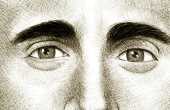Debs
Scientist by training, writer by choice. Loves anime, horror, religion, nature, folktales, and all things weird and strange.
Correspondent II
- Plebian Penman
- Common Writer
- Aristocratic Author
- Lurker
- Pssst
- Hand Raiser
- Vocal
- Sharp-Eyed Citizen
- Town Watch
- Detective Deskman
- Actor
- Successful Pilot
- Otaku
- Article of the Month
- ?
- Articles
16 - Featured
16 - Comments
136
- Ext. Comments
72 - Processed
34 - Revisions
32
- Topics
32 - Topics Taken
6 - Notes
61
- Topics Proc.
32 - Topics Rev.
17
- Points
4946 - Rank
25 - Score
2519
Latest Articles
Latest Topics
Spirituality in "Chainsaw Man"Whilst the series "Chainsaw Man" has much in common with other shounen action series, it also appears to be trying to make some sort of spiritual point. The frequent invocation of devils and the Four Horsemen, for instance, seems to be drawn from Christian theology. It is also possible to read Denji as a Christ figure (whose friendship with others causes them to become better versions of themselves) and Makima as a Satanic figure (who wants to bend the entire world to her will). On the other hand, Christianity does not appear to be the only influence in "Chainsaw Man." For instance, Denji may be less a Christ figure per se than a generic "savior" figure, similar to Neo from "The Matrix," who has his roots in multiple religious traditions. Moreover, there are actually some interesting parallels between Makima and the way certain atheists understand the God of the Bible: namely, as a sort of controlling, wicked stepfather. What spiritual dimensions can be found in the characters and setting of "Chainsaw Man?" Is there any influence of traditional Japanese spirituality, such as Shintoism or Buddhism, and if so, what does it consist of? Are any of the spiritual references in the series deliberate, or are they purely aesthetic?
|
Is Harry Potter's Lord Voldemort an obsessed creative?There is a very interesting blog entry on the Harry Potter Amino Apps page that compares Lord Voldemort (nee Tom Riddle) from the Harry Potter series to Andrew Nehman, the protagonist of Whiplash. The main thrust of this argument is that both characters come from a long line of mediocrities, and develop an obsession with being the best in their chosen fields in order to counter this, even if it costs them their humanity and personality. They also share at least one other similarity that goes unremarked upon in the blog: namely, that both of their mothers died in childbirth. The question is, does Voldemort have any other traits that make him similar to other obsessed creatives (real or fictional) besides just Nehman? What, if any, artistic talents does he possess, and what are some of the lengths he goes to master them? In terms of his characterization, just how essential a role does creativity play in making him who he is? Is there actually anything to the idea that Tom Riddle/Voldemort's backstory and arc are that of an obsessed artist or creative personality, or does he just happen to have some traits in common with one obsessively artistic character purely by chance? |
The drive to turn children's TV shows into something adult-themedMany adults nowadays like watching children's TV shows. Sometimes this is due to the nostalgia factor associated with a beloved show from childhood, whereas other times, adults will start watching a show in adult age (as happened with both "My Little Pony: Friendship is Magic" and "Bluey," for example). Either way, it's common for adults watching the show to attempt to put a more adult-themed spin on the plot or characters than was initially intended, by adding more violent, sexual, or all-around disturbing content. On the simplest level, this can take the form of disturbing fan theories or memes about children's TV (such as the "Rugrats" theory that everyone is dead except for Angelica); but it can also be more extensive. For instance, the "My Little Pony" fanfic known as "Cupcakes" was a well-written story whose entire purpose was to make "My Little Pony" violent. This story was so successful it spawned an entire subgenre of "grimdark" fanfics, in which each of the main characters from "My Little Pony" took turns playing the role of a bloodthirsty villain. The question is, why are adults so interested in making adult-themed versions of popular children's shows, especially when there are so many gritty, adult-oriented TV shows out there? If the adults are watching the children's shows because they like wholesome entertainment, then why post adult-themed fanfic or memes about them at all? Is there something about the union of children's shows with dark themes that is exceptionally appealing, and, if so, are there certain characteristics that make particular shows most likely to be used in this way?
|
Main character ensemblesAlthough many stories have just one main character, many others have an ensemble of main characters, usually in sets of three to five. Although one character in these ensembles may be presented as more central to the story than the others, technically, all the characters in the ensemble could be considered main characters. For instance, a lot of classic superhero programs, especially on television, feature a team of five superheroes, often with one or two of that number being female. The children's musical comedy "Fraggle Rock" also has five main characters (three male and two female), while "The Office" and its permutations have four (three male and one female). If there are three main characters, they're often all of the same gender (e.g., Alvin and the Chipmunks), but an arrangement of two males and one female (as in the "Harry Potter" and "Twilight" series) also seems to be popular. Why are these particular configurations of main characters so common? Are there any stories that invert the usual gendered expectations about the makeup of the groups (two females to one male, for example)? Moreover, why does any story need more than one main character in the first place? |
Obsession with food as a marker of childishnessIt sometimes happens in TV shows, particularly comedies, that a childish character will show an inordinate interest in food. For instance, both Michael Scott from "The Office" and Liz Lemon from "30 Rock" are childish main characters who are obsessed with food, and many compilations of them eating exist on YouTube. Ernie, a character from the German comedy "Stromberg," is also obsessed with food and notably more childish than his English-speaking counterparts Gareth and Dwight (who show less interest in food but are instead obsessed with sex). The fact that childishness and food obsession show up together so often suggests that an interest in eating itself is meant to highlight the character's childishness in some way. Why do you think this is? What are some other examples of shows that connect childishness with a love of eating?
|
What is the legacy of Skins?Skins was a British teen soap opera which began in 2008 and ran for about seven seasons. This series was renowned for its controversial subject matter, as many of the characters did things like have sex, experiment with drugs, and struggle with serious mental health concerns. Several of the cast members–including Nicholas Hoult, Dev Patel, and Kaya Scodelario among others–went on to have illustrious film and television careers. What if any influence has Skins had on the teen soap opera genre? How many modern teen soaps–which tend to feature fairly dark subject matter–were inspired by Skins, whether directly or indirectly? How do more recent television shows for teens compare to Skins in terms of characterization and structure?
|
Cringe comedies that aren't The OfficeThe Office and its many adaptations stand out as pioneers of a genre called cringe comedy. In a cringe comedy, the central characters act like fools, and the audience responds by laughing at them out of nervous surprise and vicarious embarrassment. What are some examples of cringe comedies other than The Office? What, if any, influence do you think The Office has had on them? Is there a way to distinguish "good" cringe comedy from "bad" cringe comedy?
|
Glee and cringe comedyAlthough it relies heavily on the tropes of teen soap operas, the musical series Glee is often seen as a comedy. What is interesting about it, though, is that most of the humor appears to be what is often referred to as "cringe" humor. Cringe humor is so-called because it entails a character acting in provocative or foolish ways and causing the audience to laugh at them instead of with them. In the case of Glee, some of the more famous examples of cringe include the teenage characters attempting to perform "sexy" dance numbers, and the one-liners provided by Jane Lynch and Matthew Morrison, who play the most prominent teachers. Some YouTubers have even taken to compiling the most cringey scenes from Glee and giving their videos names like "Glee out of context" or "Glee scenes that give me secondhand embarrassment." So, is Glee a cringe comedy? Or is it a soap opera that just happens to have cringey humor in it? Is there something about the premise or cast of Glee that naturally lends itself to cringe humor?
|
Latest Comments
| The Queen in Yellow: How The Substance Reinvents a Gilded-Age Short Story | |
| The Queen in Yellow: How The Substance Reinvents a Gilded-Age Short Story | |
I largely agree with you, and I think that’s why I find Whiplash more unsettling the more I rewatch it. Because, particularly when the metacommentary surrounding the film is taken into account (in the form of interviews with Chazelle and even many of the comments on this very article), it kind of seems like it’s trying to push you into the role of Fletcher. Ordinarily, when a character is abused, it’s meant to make the audience support that character; but instead, Nehman is kind of made out to be an idiot for getting taken in by the whole thing, as if the fact he doesn’t know better means he somehow deserves his suffering (i.e., “He’s so obsessed he can’t keep a girlfriend because he’s too busy practicing! What a fool!” etc). The film also has multiple, lingering scenes of Nehman bleeding and suffering, which are ostensibly designed to show his obsessiveness; but the way the narrative keeps circling back to it on camera makes it seem like Chazelle is enjoying his suffering a little too much. And then, after all that, when Nehman finally pulls off a great drum solo, even that is taken away from him by the capital-D Discourse, which states that it only proves how slavishly devoted to Fletcher he is. It’s enough to make me almost prefer the naysayers who believe Whiplash is a horrible, disgusting film that glorifies abuse, even though I actually like the film. | The True Meaning of Whiplash |
The thing about the “cozy games” mentioned in the article is that (with the exception of Stardew Valley) they’re relatively old. I remember seeing advertisements for Animal Crossing when I was a preteen, and the article even mentions that Harvest Moon came out in the 1990s. What this suggests to me is that, if indeed the point of cozy games is to serve as a welcome distraction from the harshness of the world, that idea has been around longer than many people give it credit for. Unless, of course, these cozy games were once niche and have only recently exploded in popularity, which is possible too (I don’t really play cozy games, so I don’t know). | The Rise of Cozy Games |
It’s interesting you mention that because part of me wonders if the real purpose of Whiplash was to be a kind of “sour-grapes” fantasy on Chazelle’s part. Particularly with his repeated insistence in interviews that Andrew never never never becomes great, and is destined to die broke and drunk and full of heroin at the age of 34. I have it on good authority that Chazelle based Fletcher on a drumming instructor he had in high school (and absolutely hated), and that this instructor effectively discouraged him from pursuing a full-time career in music. If all “great” musicians are miserable wretches with no personal life who are destined to die much too young, there’s no need to feel bad that you can’t compare. | The True Meaning of Whiplash |
I actually think you may be onto something. It certainly doesn’t seem like Fletcher cares about jazz music much per se. | The True Meaning of Whiplash |
Interestingly, I find that the more I watch different versions of The Office (especially in English), the less funny I find them. I suspect it has something to do with the fact that they showcase such selfish and horrible people. The British version remains at least somewhat funny insofar as the abusive boss is himself the butt of most of the jokes; but by the time we get to the US Office (as well as later Stromberg), it feels more like we’re being asked to laugh with him at the expense of his victims. | A Detailed Look at the Cast of The Office |
For me personally, Stromberg is more entertaining than the US Office. | A Detailed Look at the Cast of The Office |








My take was that the reason why she was so lonely is that she’d already alienated everyone who might otherwise care for her (except perhaps Harvey, who’s just as bad in his own way).